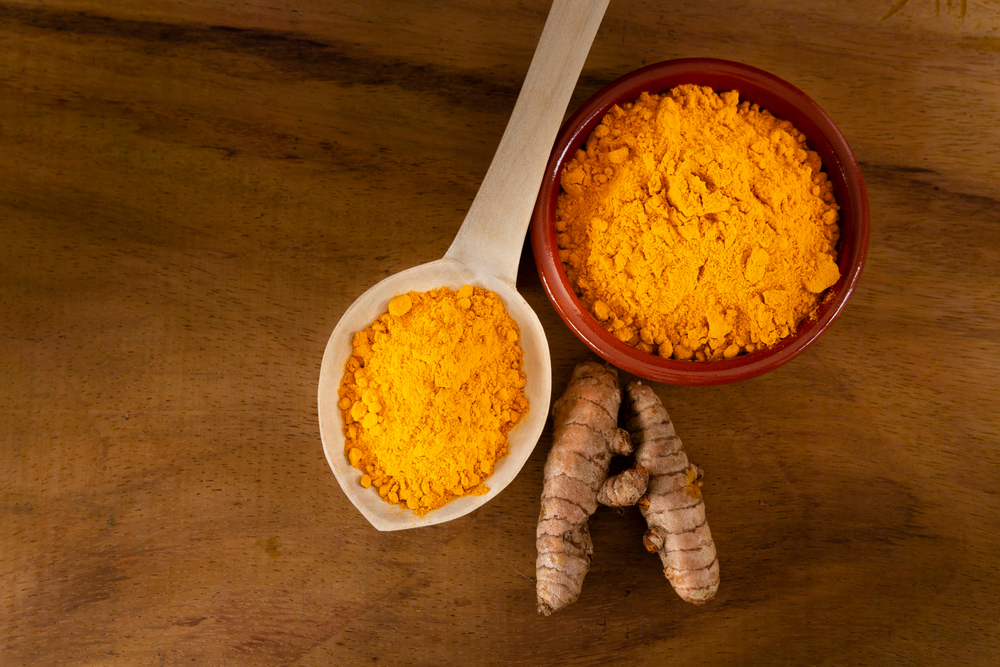Feeling stiff? Keeping your joints supple and strong is important for all-round health at any age. Nutritionist Christine Bailey reveals the best nutrients and joint health supplements…
You might not think you have to worry about achy knees just yet, but preserving your joint health is important at any age, especially if you regularly work out.
When your knees, hips or shoulders start to ache, it can affect all aspects of your physical performance. Plus, it often indicates that there is underlying inflammation or damage.
It’s easy to overlook the importance of healthy joints until something goes wrong, so take simple steps now to keep them healthy.
Why do we get joint pain?
Joints are places in the body where two bones connect. In most cases, they provide structural support as well as allowing movement. Your joints are lined with the flexible tissue cartilage, which keeps them lubricated.
Healthy cartilage preserves ease of motion and keeps your joints pain free. There are different types of joints: fibrous, cartilaginous and synovial joints. It is the synovial joints that are the most common movable joints (these include the elbow, shoulder and knee joints). It is these joints that often cause us most issues when it comes to exercise.
There are many reasons for joint pain. This includes arthritis, bursitis (inflammation of the bursae, which are sacs surrounding certain joints), tendon inflammation (also known as tendonitis), strains and sprains linked to ligament injury, muscle strains and, of course, bone injuries such as fractures and breaks.
It’s often thought that regular exercise may accelerate cartilage issues due to repetitive wear and tear. However, this does not appear to be supported by research. In fact, some studies suggest that regular exercise may actually help preserve healthy cartilage levels.
That doesn’t mean exercise cannot cause joint pain. However, this is often due to overtraining, inadequate recovery, trying to lift too much weight or training with poor form.

Is it joint pain or arthritis?
Arthritic conditions are somewhat different. They are typically caused by underlying inflammatory processes that result in the immune system attacking joint cartilage.
Identifying the underlying triggers, retraining the immune response and lowering inflammation are, therefore, more useful in these cases.
It’s also worth remembering the difference between muscle soreness (often caused by lactic acid build-up) and actual pain or injury. Always listen to your body, allow time for healing and avoid any exercise that aggravates the pain.
Can supplements benefit joint health?
If you’re looking to protect your joints, you might be wondering whether or not joint supplements can help.
There is an array of supplements marketed towards joint health. However, many of these tend to be focused more on ageing joints and arthritis rather than specifically stress-related joint pain from exercise. To choose the right supplement for you, be aware that joint supplements work in a number of ways.
For example, some focus on lowering the inflammation that often accompanies pain, while others specifically target pain or support tissue repair and/or improve blood flow to the area.

Ingestible or topical?
As well as ingestible supplementation, you might consider topical pain relief. Topicals can be applied directly to a localised point of soreness or pain. One of the oldest topical treatments is arnica gel. Made from the arnica montana plant, it has long been used to treat inflammation and pain in muscles and joints.
Newer topicals have focused on balms that incorporate cannabidiol (CBD) oil. Cannabidiol has been shown to reduce pain and modulate the immune system, helping to lower inflammation.
It also plays a role in tissue healing. This, together with its anti-inflammatory properties, makes it beneficial for sports injury and pain. Applying CBD products that offer extra pain-relieving ingredients such as menthol, camphor and capsaicin may deliver even more benefits.
Try PureSport 1,000mg CBD Muscle & Joint Balm (£42.99), which contains a combination of CBD and essential oils to ease achy joints and muscles.
Whichever supplements you choose, remember that they will take time to have an impact. Allow at least one to two months to see if they are helpful. Here are some useful tips to help you get started…
Joint supplements for easing inflammation
CURCUMIN
Curcumin, the yellow pigment found in turmeric and ginger, is known for its array of health benefits including anti-inflammatory properties. For those with arthritis, curcumin has been shown to relieve pain, stiffness and improve mobility.
As absorption is generally low, look for products that include black pepper extract (piperine) or are in a liposomal form.
BOSWELLIA SERRATA
This is another great anti-inflammatory. The boswellic acids present in this plant inhibit the production of several compounds that promote inflammation, particularly lipoxygenase enzymes.
Studies show that boswellia is effective for reducing joint inflammation and pain, as well as inhibiting the autoimmune response that causes destruction of joint cartilage associated with rheumatoid arthritis.
FISH OIL
The omega-3 fats (eicosapentaenoic acid, or EPA, and docosahexaenoic acid, or DHA) found in fish oil are potent anti-inflammatories and studies have shown their ability to reduce joint pain and swelling.
As many of us don’t eat enough oily fish such as salmon, sardines and mackerel, taking a fish oil may be a useful aid to keep inflammation at bay.
Try it out: Best anti-inflammatory supplements
- Turmeric Zooki (£24.99). A water-soluble, highly absorbent alternative to turmeric shots, with each sachet containing 750mg of active curcumin wrapped in micelles.
- Myvegan Omega (£26.99). This vegan supplement provides an algal source of EPA and DHA in an easy-to-take soft gel formula.
Related: Click here to discover more anti-inflammatory foods!
Joint supplements for ageing joints

• GLUCOSAMINE
Glucosamine is a popular joint supplement normally derived from shellfish. While studies indicate it may reduce pain, one of its main benefits is its ability to reduce the rate of collagen loss.
This makes it an ideal supplement for ageing joints, but equally useful if you run a lot or take part in high-impact sports. For a clinical-effect dose, aim for around 1,000-1,500mg daily.
CHONDROITIN
Chondroitin is a natural component of connective tissue found in cartilage and bone. Studies suggest that, when combined with glucosamine, it may help reduce pain, inflammation and slow the progression of cartilage destruction associated with osteoarthritis.
METHYLSULFONYLMETHANE (MSM)
MSM is a naturally occurring sulphur compound known for its antioxidant and anti-inflammatory properties.
Sulphur is essential for the production of connective tissue, making this a great supplement for joint health as we age. MSM also seems to act as an analgesic so it is useful if pain is a concern of yours.
PINE BARK (PYCNOGENOL)
Pine bark is a potent source of antioxidants known as procyanidins. It acts as an anti-inflammatory and has chondroprotective effects, meaning that it helps protect articular cartilage and delay the progression of conditions such as osteoarthritis.
It is likely to be most beneficial when combined with other joint supplements.
Try it out: Best joint support formulas
- Solgar 7 (£29.99). These vegetable capsules contain boswellia, turmeric, ginger, willow bark extract, undernatured type II collagen, black pepper and vitamin C.
- Healthspan Joint Synergex (£16.95). A high-strength glucosamine, chondroitin and MSM formula that will support your active lifestyle.
- Boswell Joint Support Formula (£22.99). This is a high-strength joint supplement containing boswellia resin, vitamin D3, curcumin C3 complex, and BioPerine to aid absorption.
Joint supplements for exercise support

CISSUS QUADRANGULARIS
Cissus quadrangularis is a vine that grows in Africa and parts of Asia. Traditionally, it has been used in ayurvedic medicine for its anti-inflammatory activity.
Early studies are indicating it could be helpful for supporting intensive training, with one study showing a reduction in joint pain over an eight-week period.
SPIRULINA
Surprisingly, this blue-green algae superfood may be a useful fi tness food. Studies suggest it can reduce the muscle damage caused by exercise, as well as improve performance and reduce inflammation. Try adding a teaspoon to your post-workout smoothie drink.
Try it out: best joint supplements for an active lifestyle
- MyVitamins Cissus (£21.99). Each capsule contains 400mg of cissus quadrangularis, which is shown to increase collagen turnover, making it a useful aid for faster post-workout recovery times as well as reducing joint pain.
- Bioglan Organic SuperfoodsOrganic Spirulina Capsules (£16.99). Rich in the plant-based protein spirulina, which is a good source of vitamin C and can help to reduce inflammation.
Related: Click here to discover the best post-workout recovery technology!
Joint supplements for tissue repair

UNDERNATURED TYPE II COLLAGEN
Collagen is the major protein of our connective tissues, and type II collagen is a type of collagen that makes up your joint cartilage.
Undernatured collagen is a less-processed form of collagen, and studies show it is this particular type that is effective in regulating the immune response that inflames joints and leads to the destruction of cartilage.
Whether you struggle with arthritis or just ache after training, collagen may be one of the best supplements for long-term use. Aim for at least 30-40g daily for an effective dose.
GELATIN AND VITAMIN C
Whether as a supplement or food source (bone broth is a good option), gelatin together with vitamin C has been shown to reduce pain, stiffness and mobility.
Vitamin C not only acts as an anti-inflammatory and antioxidant but is also important for the production of collagen.
Try it out: best joint supplements for tissue repair
- Collagen blends SkinEnrich Joint Care Collagen Drink (£34.99). This option contains type II collagen, with added glucosamine and chondroitin, in a liquid form that supplies 6g per 25ml serving.
- PhD Life Move Joint & Bone Support (£20). Providing undernatured type II collagen with vitamin C, manganese and copper for joint health. Also available as a powder (£20).
Looking for topical relief? Traumeel is a 100 per cent natural option that’s proven to be as effective in reducing pain and inflammation as NSAIDs.
Using ingredients that regulate inflammation, Traumeel doesn’t just mask pain, but restores the balance by reducing pro-inflammatory and increasing anti-inflammatory cytokines.








